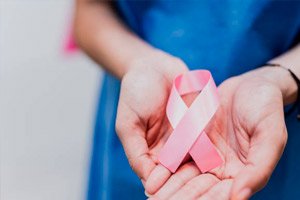
All iLive content is medically reviewed or fact checked to ensure as much factual accuracy as possible.
We have strict sourcing guidelines and only link to reputable media sites, academic research institutions and, whenever possible, medically peer reviewed studies. Note that the numbers in parentheses ([1], [2], etc.) are clickable links to these studies.
If you feel that any of our content is inaccurate, out-of-date, or otherwise questionable, please select it and press Ctrl + Enter.
New therapeutic vaccine offers hope in the fight against aggressive breast cancer
Last reviewed: 02.07.2025
 ">
">An experimental vaccine could offer hope to women with an aggressive and hard-to-treat form of breast cancer, according to a new study.
The vaccine was found to be safe and effective against triple-negative breast cancer, a type that cannot be treated with hormone therapy because it is not stimulated by any of the three hormones typically involved in breast cancer development.
The good news? Sixteen of the 18 patients remained cancer-free three years after receiving a vaccine that trained their immune systems to destroy any remaining cancer cells, according to results published in the journal Genome Medicine.
By comparison, historical data show that only half of patients treated with surgery alone remain cancer-free after three years.
"These results exceeded our expectations," said lead researcher Dr. William Gillanders, a professor of surgery at Washington University School of Medicine in St. Louis.
An early clinical trial included 18 patients with triple-negative breast cancer that had not spread to other parts of the body.
According to the National Breast Cancer Foundation, approximately 10 to 15 percent of breast cancers in the United States are triple negative.
Currently, triple negative breast cancer has no targeted therapies and must be treated with traditional methods such as surgery, chemotherapy and radiation therapy.
All patients in the study underwent chemotherapy followed by surgery to remove the breast tumor.
After the surgery, the research team analyzed the tumor tissue to find unique genetic mutations in the patients’ cancer cells. Based on these mutations, a personalized cancer vaccine was created for each patient.
Each patient received three doses of the vaccine, which trained their immune systems to recognize key mutations in their specific tumors and attack the cancer cells.
The results showed that 14 of 18 patients with triple-negative breast cancer developed an immune response to the vaccine.
"We're excited about the prospects of these neoantigen vaccines," Gillanders said. "We hope to be able to bring more and more of this vaccine technology to our patients and help improve outcomes for aggressive cancers."
However, researchers warn that larger clinical trials are needed to confirm the vaccine's effectiveness.
"We recognize the limitations of this analysis, but we continue to pursue this vaccine strategy and have ongoing randomized controlled trials that directly compare standard of care with the addition of the vaccine to standard of care without it," Gillanders added. "We are encouraged by the results we are seeing in these patients."
